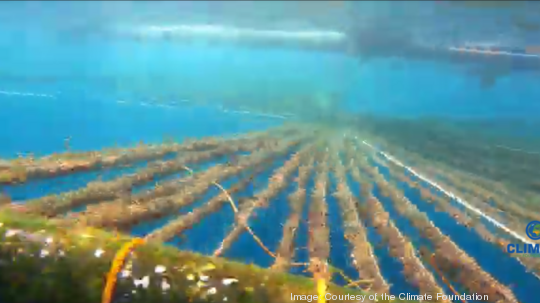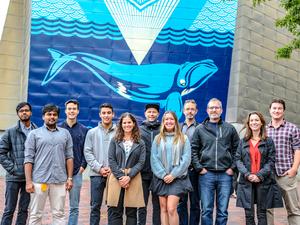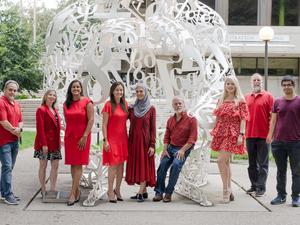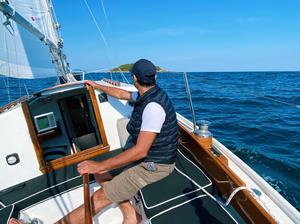
Divers, and even open-water swimmers, are familiar with this deep ocean phenomenon: The lower you descend in the seas, the colder the water becomes. Yet as climate change intensifies, much of the excess heat in the air is being absorbed in the upper layers of the ocean, creating a growing layer of warm water that prevents nutrient-rich waters from naturally cycling to the ocean surface.
Without these nutrients, kelp forests and seaweeds will struggle to survive — unless this cycle is restored.
The Climate Foundation, a Woods Hole-based nonprofit, is developing marine permaculture technology to aid the ocean farming of kelp and seaweeds. The nonprofit was recently awarded $1 million as a Milestone XPRIZE Carbon Removal winner by The Musk Foundation.
“Marine permaculture is unique in providing a combination of poverty alleviation with coastal communities and fishing communities, while at the same time addressing a truly scalable approach to carbon drawdown,” said Brian von Herzen, the Climate Foundation’s founder and executive director.
The nonprofit was one of 15 organizations chosen from 1,100 applicants for the prize, von Herzen said. After four years, $50 million will be paid to a single grand prize winner and $30 million will be distributed among up to three runners up.
The Climate Foundation is developing wave- and solar-powered, deep-water pumps to mimic the natural upwelling of nutrients toward the ocean’s surface. These pumps can prevent kelp and seaweeds from dying of overheating or a lack of nutrition.
“It’s a little bit like irrigating rice fields,” von Herzen said. “Because the water is too warm, the nutrient levels are too low, restoring natural upwelling and providing deep water irrigation to these seaweed cultivations doubles, triples, even quadruples production relative to dry cropping, which is basically just surface water irrigation.”
The growing seaweeds and kelp trap CO2 and prevent it from warming the air or ocean, von Herzen said, and the plant life also supports local marine farming communities.
Von Herzen said these pumps and the attached platforms that plant life grow on also attract marine life like tuna, sardines and even a whale shark. The nonprofit has built pumps that work in areas ranging from shallow reef flats to several kilometers offshore.
The Climate Foundation is partnering with existing seaweed communities to deploy this technology, von Herzen said. Their first site is in the Philippines. Von Herzen said they’re targeting this region because of the large market for seaweed in Asia and the “enormous regulatory burdens” in the United States for near-shore kelp and seaweed farms.
This year, the Climate Foundation received the funding to deploy its technology across a 10th of a hectare (approximately a quarter acre). After demonstrating success at this scale, von Herzen said they will be fundraising to build a full hectare. Von Herzen said the nonprofit will need to raise $3 million to $4 million and will put the XPRIZE funding toward funding the hectare.
“Our organization is committed to demonstrating the economic sustainability model for hectare-scale marine permaculture and its ability to provide food and feed and agricultural supplements,” von Herzen said.








